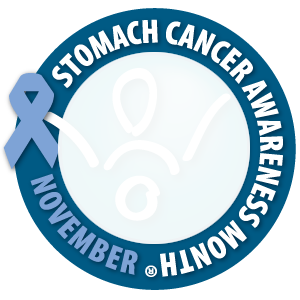
Stomach Cancer - Basic Information and Facts
Gastric (stomach) cancer occurs when cancer cells form in the lining of the stomach. Stomach cancer is less common in the United States than in many parts of Asia, Europe, and Central and South America. Stomach cancer is a major cause of death in these parts of the world. In the United States, the number of new cases of stomach cancer has greatly decreased since 1930. The reasons for this are not clear, but may have to do with better food storage and changes in the diet, such as lower salt intake.
- Stomach cancer is the fourth most common cancer in the world.
- Men are twice as likely as women to be diagnosed with stomach cancer.
- Black men are more than twice as likely as white men to die from stomach cancer.
The following are risk factors for stomach cancer:
Older age and having the following medical conditions may increase the risk of stomach cancer:
- Helicobacter pylori (H. pylori) infection of the stomach.
- Intestinal metaplasia (a condition in which the cells that line the stomach are replaced by cells that normally line the intestines).
- Chronic atrophic gastritis (thinning of the stomach lining caused by long-term inflammation of the stomach).
- Pernicious anemia (a type of anemia caused by vitamin B12 deficiency).
- Stomach (gastric) polyps.
Certain genetic conditions
Genetic conditions may increase the risk of stomach cancer in people with any of the following:
- A mother, father, sister, or brother who has had stomach cancer.
- Type A blood.
- Li-Fraumeni syndrome.
- Familial adenomatous polyposis (FAP).
- Hereditary nonpolyposis colon cancer (HNPCC; Lynch syndrome).
Diet
The risk of stomach cancer may be increased in people who:
- Eat a diet low in fruits and vegetables.
- Eat a diet high in salted or smoked foods.
- Eat foods that have not been prepared or stored the way they should be.
Environmental causes
Environmental factors that may increase the risk of stomach cancer include:
- Being exposed to radiation.
- Working in the rubber or coal industry.
The risk of stomach cancer is increased in people who come from countries where stomach cancer is common.
Stomach (Gastric) Cancer Screening
Tests are used to screen for different types of cancer when a person does not have symptoms. There is no standard or routine screening test for stomach cancer. Screening tests for stomach cancer are being studied in clinical trials.
Several types of screening tests have been studied to find stomach cancer at an early stage. These screening tests include the following:
- Barium-meal gastric photofluorography
- Upper endoscopy
- Serum pepsinogen levels
Scientists believe that people with certain risk factors may benefit from stomach cancer screening. These include:
- Older people with chronic gastric atrophy or pernicious anemia.
- Patients who have had any of the following:
- Partial gastrectomy.
- Polyps in the stomach.
- Familial adenomatous polyposis (FAP).
- Hereditary nonpolyposis colon cancer (HNPCC).
- People who come from countries where stomach cancer is more common.
For additional information, please refer to these links
https://www.cancer.gov/types/stomach/patient/stomach-prevention-pdq
https://www.cancer.gov/types/stomach/patient/stomach-screening-pdq
